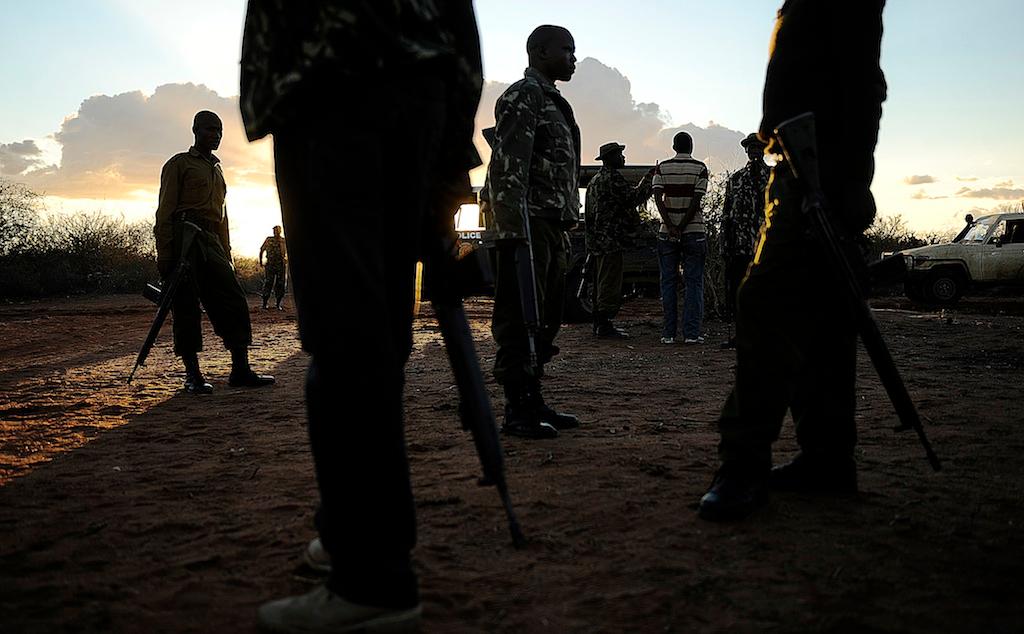Kenya’s police accused of torture, rape, abuse of refugees near Nairobi: report
Kenyan security forces conduct a search mission of refugees at Liboi, Kenya’s border town with Somalia on October 15, 2011.
Kenya's police have been accused of torturing, raping, and arbitrarily arresting hundreds of refugees near the capital of Nairobi, according to a new report by Human Rights Watch.
The report, titled "'You are All Terrorists': Kenyan Police Abuse of Refugees in Nairobi," is based on interviews with 101 refugees, who reported abuses from mid-November 2012 through late January 2013.
HRW also recorded almost 1,000 cases of arbitrary arrests of refugees.
The report said the scale of the crackdown by police was "unprecedented." Somali women described being gang-raped by policemen, and people were beaten on the streets, in trucks or in their homes until they lost consciousness, spat blood or broke bones, it said.
"Refugees told us how hundreds of Kenyan police unleashed 10 weeks of hell on communities close to the heart of Nairobi, torturing, abusing, and stealing from some of the country’s poorest and most vulnerable people," said Gerry Simpson, senior refugee researcher for Human Rights Watch and the report's author.
"Randomly attacking men, women, and children in their homes and in the streets is hardly an effective way to protect Kenya’s national security," he added.
Kenyan police did not respond to repeated calls for comment on the report; nor did the government's spokesperson.
The African nation hosts refugees from nine countries, according to a statement from the Department of Refugee Affairs, which said that such a large population of displaced peoples poses "many challenges," including "rampant insecurity" in refugee camps.
Kenya's police force also has a long-standing culture of corruption and human rights abuses, which were finally rectified in a 2010 restructuring of the constitution that separated the police force from the state, the Washington Post reported. However, many of the reforms have yet to be imposed.
A Kenyan court has also temporarily blocked a government order for urban refugees to return to the country's overrun camps, until a viable solution for the refugee crisis is found.
More from GlobalPost: New dangers threaten Kenya's Kakuma refugee camp
The story you just read is accessible and free to all because thousands of listeners and readers contribute to our nonprofit newsroom. We go deep to bring you the human-centered international reporting that you know you can trust. To do this work and to do it well, we rely on the support of our listeners. If you appreciated our coverage this year, if there was a story that made you pause or a song that moved you, would you consider making a gift to sustain our work through 2024 and beyond?
